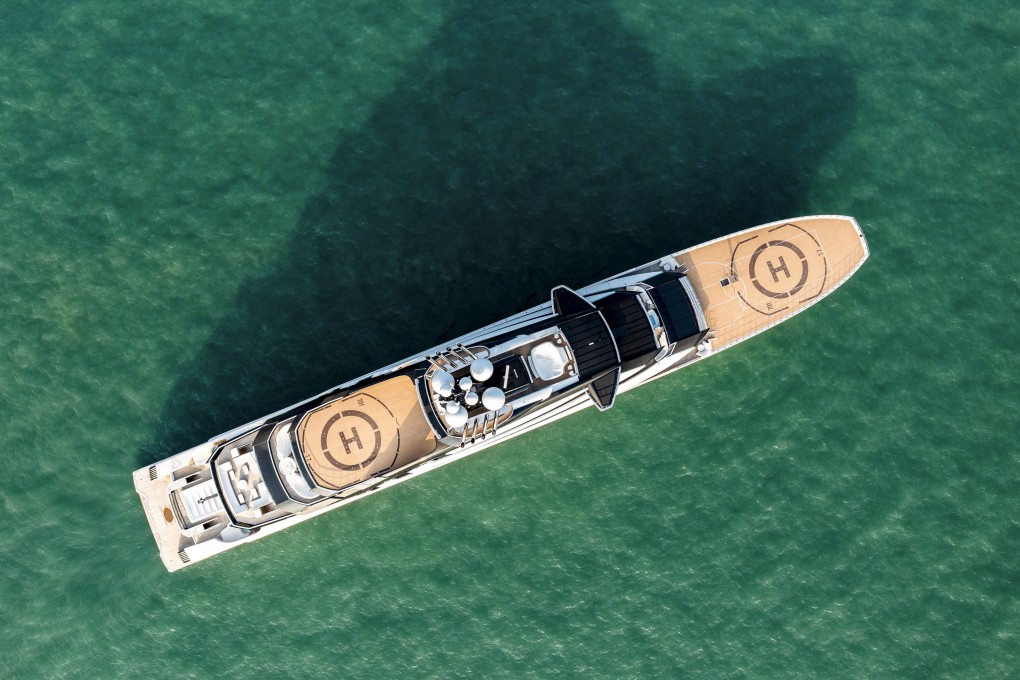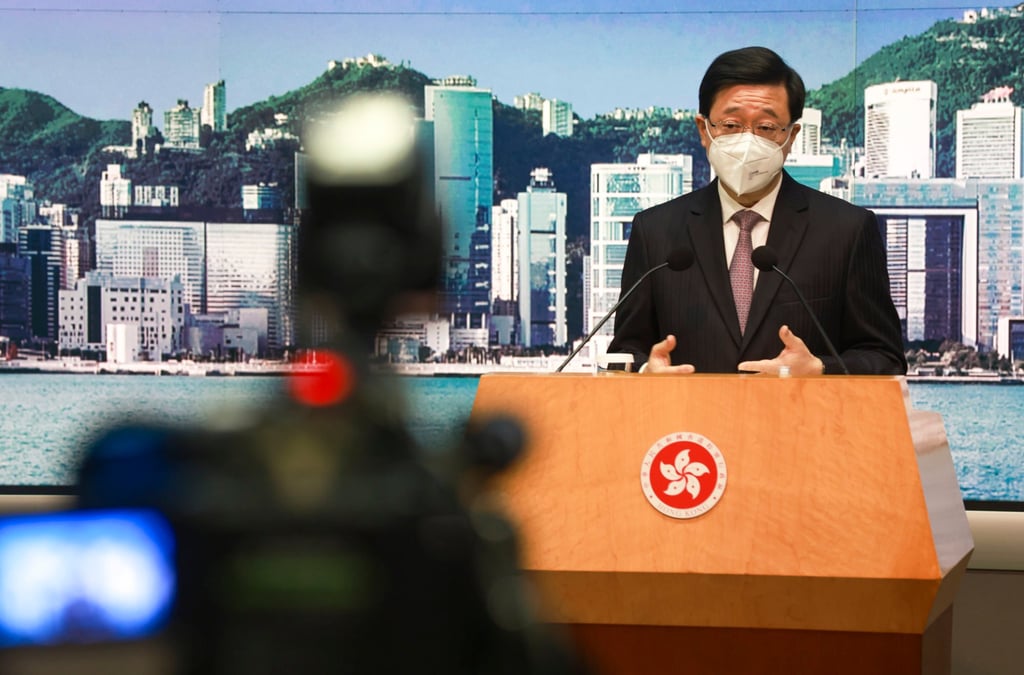Hong Kong will not implement US sanctions, says John Lee having ‘laughed off’ similar measures taken against himself
- Chief executive says financial centre will handle overseas capital according to law, when asked if Russian funds are welcome
- John Lee reiterates the city has ‘no legal basis’ to enforce sanctions not imposed by the United Nations

Hong Kong’s chief executive has doubled down on his administration’s stance of not implementing sanctions imposed by the United States, adding that he has “laughed off” similar measures taken against city officials and himself.
Asked if Russian funds were welcome in Hong Kong, city leader John Lee Ka-chiu said the financial centre would handle overseas capital according to the law. He was speaking to reporters ahead of a weekly meeting with the Executive Council, a key decision-making body, on Tuesday.
The docking of superyacht Nord, believed to be owned by sanctioned Russian billionaire Alexei Mordashov, in local waters since last week has sparked concerns among officials from the United States and the European Union that Hong Kong could become a haven for those evading sanctions, prompting a war of words with their Chinese and Russian counterparts.

Lee also noted that the US had imposed unilateral sanctions on him and other officials in 2020 because of their role in implementing the Beijing-imposed national security law.
“It is a very barbaric act,” he said when asked if he was receiving his salary in cash like his predecessor Carrie Lam Cheng Yuet-ngor who was also sanctioned.
“Officials in Hong Kong do what is right to protect the interests of the country and the interests of Hong Kong. So we will just laugh off the so-called sanctions.”
Lee’s comments came three days after the US State Department warned that “the possible use of the city as a safe haven by individuals evading sanctions from multiple jurisdictions further calls into question the transparency of the business environment”.